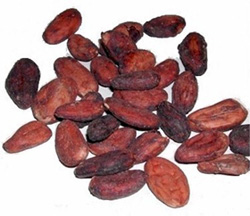
After spending years studying Central American Indians whose diet is exceptionally rich in cocoa, Professor Norman Hollenberg said that epicatechin could prove as important to medicine as penicillin or anaesthesia, reported the online edition of Epicatechin occurs naturally in cocoa beans. Hollenberg compared the health of the Kuna, who live on a group of isolated islands, with that of inhabitants of the Panamanian mainland.
He found the Kuna tribe rarely suffer from high blood pressure and have much lower rates of cancer, heart disease and strokes – some of the biggest killers in the developed world – than neighbouring tribes in Panama.
It is due to their high intake of epicatechin, which they get from drinking up to five cups of cocoa a day, Hollenberg said. ‘The health benefits of the chemical, which is also found in tea, wine and some fruit and vegetables, could be enormous.’
Analysis of death certificates showed that the Kuna, who start drinking cocoa from the moment they are weaned, were 25 times less likely to die of cancer and 13 times less likely to be killed by a stroke.
Death from heart disease was five times less common, while diabetes deaths were six times less common, according to the report that appeared in the International Journal of Medical Sciences.
Other research showed that when the Kuna moved to the mainland, they were more likely to suffer from these conditions – suggesting their previous good health was due to diet rather than genes.
It is thought that epicatechin boosts health by relaxing blood vessels and improving circulation. Other conditions that could benefit from this include dementia, impotence and pre-eclampsia, a life-threatening complication of pregnancy, the scientist said.
Unfortunately for chocolate lovers, most of the naturally occurring epicatechin is removed in the processing of cocoa beans.
But in the future, the plant compound could be sold as a dietary supplement or used to develop drugs, Hollenberg said.
